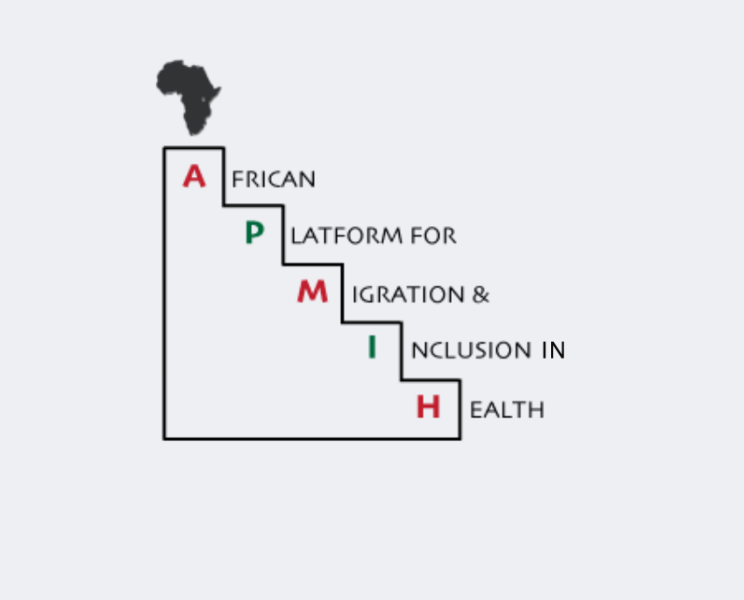19/03/2020 - STATEMENT ON COVID-19
APMIH expresses deep concern for vulnerable migrant communities across Africa - including refugees, internally displaced persons, stateless persons and nomadic populations - in light of the COVID-19 pandemic. Please read our statement here.
10/05/2019 - CALL FOR ACTION - SIERRA LEONE RETURNEES
APMIH is alarmed to learn of a recent surge in medical cases involving particularly vulnerable migrant returnees and deportees in Freetown, Sierra Leone. Our partner - Advocacy Network against Irregular Migration (ANAIM) - has reported cases of communicable diseases, including HIV/AIDS, hepatitis, scabies, syphilis, genital herpes and gonorrhoea, as well as non-communicable diseases such as post-traumatic stress disorder, acute asthma and arthritis.
We stand with ANAIM in demanding better access to healthcare for all, regardless of ability to pay.
Statement from Saa Mockaimakoe Famanda, on behalf of ANAIM:
“The world should continue to know and understand that the many Sierra Leonean sisters who left this country had to leave because they had no choice if they should live a better life. Many of them decided to fend and be responsible back home. Out of nothing, some sold lands and family property to go on a sojourn for better living but their stories have been tragic. Some have died a bitter death while some have been tortured that they no longer have the appearances of humans. Dignity has been violently stolen from them and like slaves or worst than slaves they have been homeless and hopeless.
Who can help them?
Sierra Leone is just a small country with plenty mineral resources and if we had good leaders, no Sierra Leonean will risk his or her life in foreign countries where the people know nothing but hostility.
The road to Libya had become a graveyard for our brothers and sisters. Remember that the late Gadaffi transformed that land and made it a better abode for his folks. This place had to attract many unmentioned Sierra Leoneans, but like bees most of them fell in hot fires and died while some have been left without feathers.
Today, the victims are streaming back home because there is no place like it. But how they are received back home as deportees and returnees has a pitiful narrative.
However, Advocacy Network against Irregular Migration is playing a leading role to advocate for them but the number of cases demands that more efforts most be made by the government of Sierra Leone and other humanitarian agencies. This is key, because most of the victims have come back home not only with alleged sexually transmitted problems, but are here without clothes, places to sleep, and not even to talk about food to eat. How can Sierra Leoneans who have become victims and are back in their homeland have no attention paid to them by their own government?
In some parts of the world, people who suffer from post-traumatic stress disorder have jumped into jungle justice. Sierra Leone may not be an exception if ‘the earlier the better’ is ignored, especially where HIV and AIDS plus many STDs have halted the growth of developed countries.”
For more information, please contact Advocacy Network Against Irregular Migration at 11 Bai Bureh Rd in Freetown, or contact Mr. Sheku Bangura (Director) on +23280235588
04/04/2019 - HEALTH OF MIGRANT RETURNEES IN SIERRA LEONE
Migrant returnee and deportee women, with APMIH’s founder, at Freetown’s Advocacy Network [ANAIM] (January 2019)
APMIH recently engaged with local civil society in Freetown (Sierra Leone), in order to discuss local action on migration and health, as well as their work on the health of migrants who had returned back to Sierra Leone. View our info sheet here for a brief overview of this issue.
12/12/2018- Health of street and migrant children in ghana
Tour of the in-house clinic at Catholic Action for Street Children (October 2018)
As part of a scoping exercise, APMIH’s founder, Christy Adeola Braham, recently chaired a discussion in Accra (Ghana) on the health of street and migrant children in Ghana’s cities. Click here to view our info sheet, which presents a brief overview of the main issues identified.
16/05/2018 - WELCOME TO APMIH!
Welcome to APMIH! We are now active on Twitter and Facebook, so please feel free to follow us on social media.

![Migrant returnee and deportee women, with APMIH’s founder, at Freetown’s Advocacy Network [ANAIM] (January 2019)](https://images.squarespace-cdn.com/content/v1/5af22449e17ba3f52f6d1269/1554376732574-O3D2RXRKL3DW6ZWVB3QJ/IMG_20190127_102554.jpeg)
